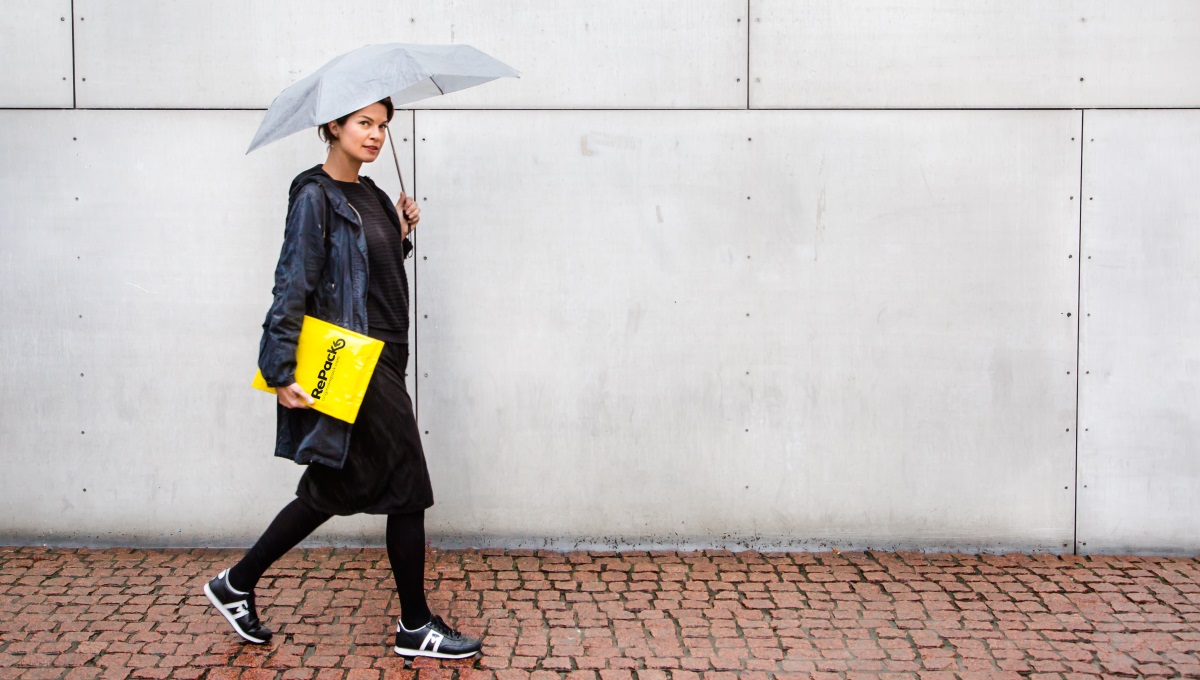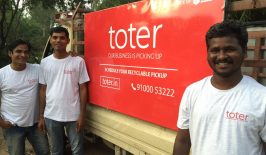Online shopping is big business these days – unfortunately at the expense of the environment. The more products we have delivered to our homes, the more the inevitable pile of packaging waste grows. One startup from Finland has taken the concept of bottle and can deposit return systems and transferred it to the world of online shopping, in a bid to drastically reduce the industry’s packaging waste. Unlike the usual one-use cardboard, plastic or styrofoam, the reusable packaging from RePack is designed to be reused up to at least twenty times. The founders – Juha Mäkelä, Petri Piirainen and Jonne Hellgren – originally worked together in a sustainable industrial design agency before launching
RESET spoke to Christine Braun about their recyclable packaging solution. Christine studied “International Cultural and Business Studies” and moved to Helsinki three years ago as part of Climate KIC‘s European “Pioneers Into Practice” training programme, where she discovered RePack. Since then she has been supporting the Finnish company with business development.
Christine, how did the idea for RePack come about? And what do you hope to achieve?
The idea for RePack works in a similar way to a bottle or can deposit return system – a concept which is very much a part of life in both Nordic countries and in Germany. When he was a student in Copenhagen back in 1990s, and he realised he could afford a new full bottle for returning three empty ones, our chief designer Juha Mäkelä recognised that there is real value in returning reusable packaging. RePack was founded in 2011 after he was able to convince his colleagues Petri Piirainen and Jonne Hellgren of the idea of using a similar deposit system to remove packaging waste from online retail.
What is the packaging made of? How often can it be reused?
As a company that is dedicated to a circular, trash-free world, our RePacks need to be made from a durable and at the same time inexpensive material that meets our requirements, and that can be folded into an envelope and be reused at least 20 times. The best material for this is currently recycled polypropylene – think of it as being similar to the famous blue IKEA bags. As we begin serving more different types of online stores and packaging even more diverse products, we will develop more materials and designs, of course. Luckily, the creativity of our designers knows no limits, other than perhaps being able to find enough space to store all the different prototypes.
Okay, and what happens to the packaging when it can no longer be reused?
Here I have to mention our very creative designers again. Currently they are using the (as yet, still very few) worn out, unusable RePacks to create prototypes for new designs. And in the spirit of up-cycling, there are already a huge amount of ideas, often inspired by RePack users, of how to transform the material into new products such as purses or bags. So watch this space…
How do you make money with RePack? Could you explain your business model?
RePack is not just packaging, it’s also a service and we just earn per use – so we have a real interest in the packaging being reused as often as possible. That’s our environmental and customer promise at the same time.
Which companies are you targeting with your service?
Where is RePack already in use? And where do you want to take it next?
Which challenges do you think you’ll see in the future? And which have you already overcome?
Every market and every country has its own requirements, just like every industry and every company has its own particular ideas – managing to accommodate all of them is not only challenging, but also time-consuming. And as a startup we only have a limited amount of time, and would have to use investors’ money to buy ourselves more of it. We’ve already entered several important markets with RePack and made our mark on the textile industry. But what’s really needed is for our society to have a shift in mindset, and for even more courageous people and companies to become pioneers for a trash-free world.
This article is part of our series Sustainable Economies and Environmental Protection with the Circular Economy, which is supported by the BMW Foundation.
This is a translation by Marisa Pettit of an article which originally appeared on RESET’s German-language site.






